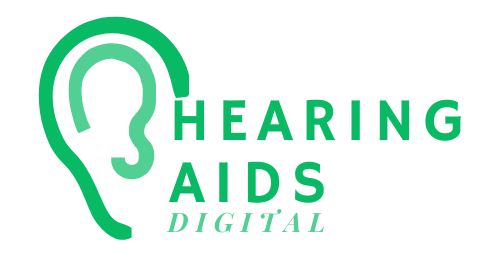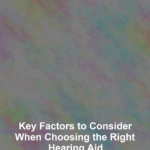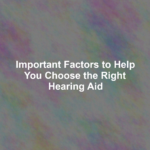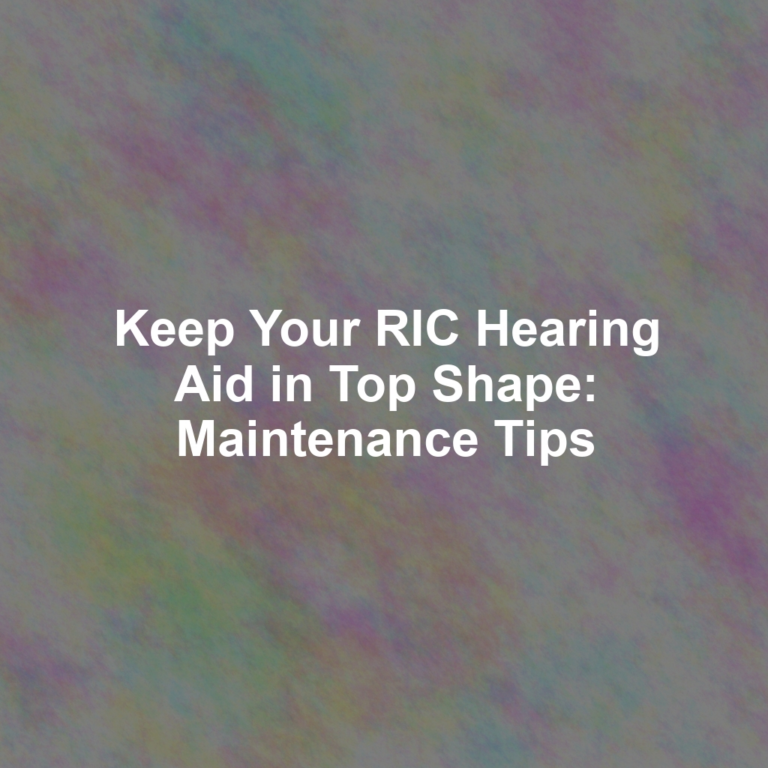When itG??s time to enhance your auditory experience with a hearing aid, youG??re faced with a symphony of choices, each playing a different tune to suit individual needs. ItG??s crucial you consider not just the melody of marketing claims but the harmony of personal suitability and technology.
As you navigate this decision, youG??ll need to tune into the specifics of your hearing loss, sift through the variety of devices available, and assess how each aligns with your daily activities. Your budget also plays a not-so-silent partner in this process, influencing the range of options within your reach.
LetG??s explore the key notes to ensure the device you select strikes a chord with your lifestyle, without breaking the bank. Join the conversation to uncover the nuances that will guide you to a decision that sounds just right for you.
Assessing Your Hearing Loss
Before selecting a hearing aid, itG??s essential to understand the nature and extent of your hearing loss. You canG??t make an informed choice without knowing what youG??re dealing with. Hearing loss varies greatly among individuals, so youG??ll need a thorough assessment to determine the specific characteristics of your condition.
Start by visiting a certified audiologist. TheyG??ll conduct a series of tests to gauge your hearing levels across different frequencies and situations. YouG??ll discover whether you have trouble with high pitches or low tones, and if your hearing loss is symmetrical or more pronounced in one ear. ItG??s not just about volume; clarity and the ability to discern speech in noise are critical factors that will influence your choice of hearing aid.
Your audiologistG??s findings will guide you towards the right type of hearing aid. Some devices are better suited for mild losses, while others pack more power for severe impairments. YouG??ll also need to consider your lifestyle. Are you active and need something robust? Maybe youG??re looking for discreet options that wonG??t interfere with glasses or telephones.
Armed with the facts about your hearing loss, youG??ll be ready to sift through the myriad of options and find the hearing aid that best suits your needs.
Understanding Hearing Aid Types
When youG??re navigating the world of hearing aids, itG??s crucial to understand the different types available and how they cater to various needs. Essentially, there are three main styles youG??ll encounter: Behind-The-Ear (BTE), In-The-Ear (ITE), and In-The-Canal (ITC).
BTE models rest behind your ear and connect to an earpiece that sits in your ear canal. TheyG??re versatile and often recommended for people of all ages with any degree of hearing loss. TheyG??re also easier to handle and maintain.
ITE aids fill the outer ear and are custom-made to fit your ear shape. TheyG??re less visible than BTE aids and can be easier to use with the phone. However, they mightnG??t be suitable if you have severe hearing loss or dexterity issues.
ITC hearing aids are even less conspicuous, fitting partially or completely within the ear canal. TheyG??re a discreet option, but their small size can make them tricky to handle and they may not have as much power as BTE or ITE aids.
Lifestyle and Hearing Aid Features
Your daily activities and personal preferences play a pivotal role in determining the best hearing aid features for your lifestyle. Whether youG??re a social butterfly attending various gatherings, an outdoors enthusiast, or someone who enjoys quiet evenings at home, your hearing aid should complement the way you live.
Consider these factors:
-
Connectivity: If youG??re tech-savvy and use a smartphone, tablet, or TV frequently, look for hearing aids with Bluetooth or wireless connectivity. This allows you to stream audio directly to your device, making calls and watching TV a breeze.
-
Durability: For those of you who spend a lot of time outdoors or are involved in physical activities, a hearing aid with robust build quality and moisture resistance is crucial. YouG??ll need a device that can keep up with your active lifestyle without frequent repairs.
-
Discretion: If youG??re concerned about the visibility of your hearing aid, youG??ll want to explore more discrete options like completely-in-canal (CIC) or invisible-in-canal (IIC) models.
Budgeting for Hearing Devices
Understanding the cost of hearing aids is essential, as prices can vary widely based on features and technology levels to suit your specific hearing needs. When youG??re budgeting for hearing devices, itG??s important to consider not only the initial purchase price but also the long-term expenses such as maintenance, batteries, or possible repairs.
Start by setting a realistic budget that reflects the investment youG??re making in your quality of life. DonG??t forget to check with your insurance provider to see what part of the cost, if any, is covered under your plan. Some policies may include a hearing aid benefit, while others might not.
YouG??ll also want to explore financing options if the out-of-pocket cost is steep. Many audiologists offer payment plans to help spread the cost over time. Additionally, consider hearing aids as a long-term investment; a higher upfront cost for a more advanced device might save you money in the long run due to fewer repairs and better durability.
Lastly, look for value, not just the cheapest option. A less expensive model might end up costing you more if it doesnG??t adequately meet your needs, leading to possible upgrades or replacements sooner than expected. Prioritize your hearing requirements and the potential for improved quality of life when making your budgeting decisions.
Finding a Qualified Audiologist
Embarking on your journey to better hearing starts with selecting a qualified audiologist who can guide you through the process of choosing the right hearing aid. YouG??ll need someone who isnG??t just knowledgeable, but also understands your specific needs and concerns. HereG??s how you can find the right professional:
First, check their credentials. A certified audiologist should have the necessary education and licensure to practice in your area. TheyG??ll also stay updated on the latest advancements in hearing technology.
Next, consider their experience. You want an audiologist whoG??s a track record of successfully helping individuals with hearing loss. Ask for referrals or read reviews to get a sense of othersG?? experiences.
Lastly, evaluate their approach. A good audiologist will offer personalized care and take the time to explain your options, ensuring youG??re comfortable and informed throughout the decision-making process.
- Check Credentials: Look for certifications and licensure.
- Consider Experience: Seek out audiologists with a proven track record.
- Evaluate Approach: Choose someone who provides personalized care and thorough explanations.
Conclusion
YouG??ve got the rundown on making the best hearing aid choice now.
Remember to assess your hearing loss carefully, understand the different types and features, and consider how they fit your lifestyle.
DonG??t forget to budget wisely and always consult with a qualified audiologist.
With these factors in mind, youG??re all set to find the perfect hearing aid thatG??ll make sounds clearer and your life a little easier.
HereG??s to hearing the world more fully!











